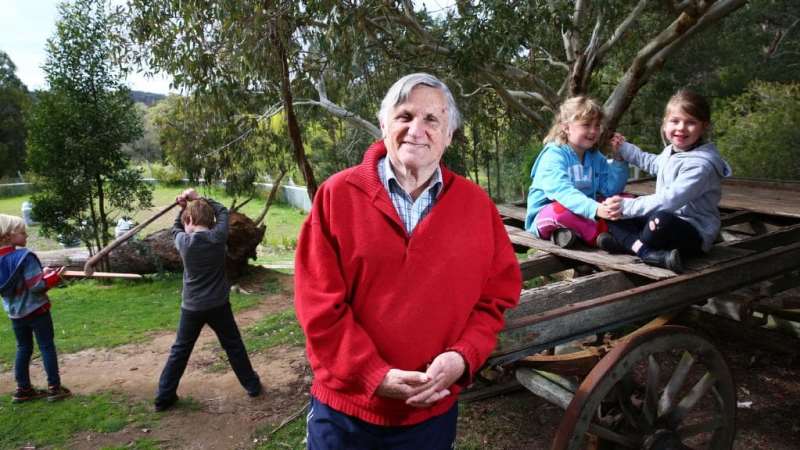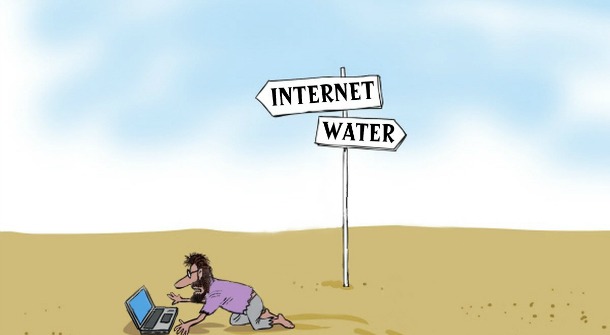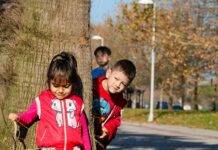
John Marsden is a well known Australian educationist who started an alternative school named the Candlebark School, close to Melbourne in 2006. The school is set in a beautiful and green campus of native forests, creeks and waterfalls. The school has a total of 147 students and about 30 committed teachers.
The school believes that children learn much more from first-hand experiences than they do from second-hand sources and that being open and accepting to the world of new ideas is the most important part of the experience of growing up. John Marsden has written a series of notable books on a wide range of themes around parenting, the meaning and purpose of education and the problems associated with modern day parenting.
His books have been translated into many languages across the world and he is considered as an important voice in the field of pedagogic experimentation.
He has spent decades writing about founding schools, the emergent crisis of good minds in the vocation of teaching and the high levels of performance anxiety that snatch away the wonder of learning from young learners.
John Marsden has now come up with a new book
‘The Art of Growing Up’. This is an important book in our times because it tells us what is fundamentally wrong with the way we tackle our children today and how this lapse on our part, creates fundamental damage to the growth of a holistic individual. He asserts throughout the book that contrary to popular belief, what we are witnessing today is the ‘epidemic of toxic parenting’. He clearly demarcates between a parent’s ‘love for the child’ and the parent ‘being in love with the child’.
When I hear parents say ‘I want my children to enjoy their childhood; there’ll be time when they’re older to learn about those things’, I hear the voices of those who are scared of the vastness of the universe. These adults have a view of childhood as some kind of discrete interval, rather than just a few years from the continuum of life. How fortunate that the spirit, courage and curiosity of many young people remain largely undefeated by such adult.
He argues that there is a fine line between parenting as a catalyst in the growth and flowering of a child’s inner creativity and parenting as the negation of the child’s freedom in the name of love or nurturance. Just like a seed needs ample free space to grow up into a healthy tree as much as it needs the care of the gardener, similarly the child needs the love of the parent but not their toxic indulgence. He asserts that it is extremely common to see how some parents keep fighting on behalf of their children, become excessively overprotective, fulfil all the demands made by their children without even allowing them to decide whether it is actually a need and even purposefully working towards creating an environment where the child does not face any sort of difficulty- makes the child ultimately vulnerable and incapacitated as they grow up.
He makes an important observation in his remarkable book, wherein he asserts that one of the biggest problems of modern day parenting is that both children and parents and extremely anxious of performance and look at any kind of failure as the negation of all possibilities. They exert tremendous emotional pressure on the child and make it impossible for her to find any meaning in her own existence if she is unable to match up to the level of performance that her parents expect from her. Moreover, the growing culture of surveillance and the lack of trust in all kinds of traditionally revered sources of authority such as the ‘teacher’ have amplified the issue.
While awareness may be important, the complete absence of trust and the creation of a culture of mistrust have ruined the process of education and taken away all its softer, enriching moments.
The teacher-student relationship has been reduced into one of client and service-provider and one would hate to look at the other beyond this narrow and ‘professional’ definition. Marsden tells us that one of the significant reasons why modern parents worry so much about their children while they are at school is with regard to physical injury.
But he also argues that while all parents are naturally concerned that their child is not hurt, this should not mean that they are refrained from climbing trees, running around in open fields, cycling or dirtying their clothes in the sand.
This kind of over-over-protectiveness by parents is equivalent to slow murder. Marsden feels that childhood is a crucial juncture in one’s life and without hurting one’s knees, without dirtying one’s clothes, without having run under the open sky, without having been totally dazed and amused by the abundance of nature- it is indeed incomplete. He tells us how it is a total paradox that while Australia is one of those countries where schools have recreational spaces for children which are as a large as the size of a few basketball courts put together, children do not have the permission to run around freely,,interact with one another, share food with each other, climb trees or ride a bicycle in the open. By denying children the freedom to express themselves, take up new challenges on their own, freely interact with one another and to expose themselves to nature- we are damaging their growth and hampering their independence.
Marsden reminds us that we are continuously failing our children while thinking that we are helping them out. While in his latest book John Marsden has put together more than thirty years of experience as an educator interacting with children and guardians at various levels and observing how the entire process of parenting is undergoing change, it is for us to acknowledge the warnings he lets out and act upon them. This can be seen as a modern day manifesto that is insightful and ambitious.
It is a book that talks about toxic parenting, the dilemmas entered around bringing up children in the modern world and the conundrum of what it takes to be happy in our times.













